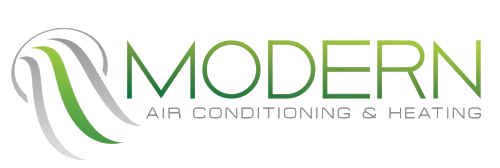The Connection Between HVAC and Home Allergies
Regular HVAC system maintenance and effective allergen control measures create a healthier indoor environment and improve the quality of life for allergy sufferers.
A home's HVAC (Heating, Ventilation, and Air Conditioning) system plays a substantial role in maintaining indoor air quality, which can significantly impact allergies and respiratory health. The connection between HVAC and home allergies is multifaceted. On the one hand, a properly maintained and efficient HVAC system can help mitigate allergens, while on the other hand, an improperly maintained system can exacerbate allergy symptoms. Here's a closer look at how the HVAC system influences home allergies:
Air Filtration
The HVAC system's air filters are designed to capture and remove airborne particles, including allergens like dust, pollen, pet dander, and mold spores. High-quality air filters, such as HEPA (High-Efficiency Particulate Air) filters, are particularly effective in removing small particles. Regularly cleaning or replacing the air filters is crucial to maintaining their effectiveness and preventing the recirculation of allergens throughout a home.
Ventilation
Proper ventilation is essential for sustaining good indoor air quality and controlling allergens. An HVAC system with proper ventilation ensures the continuous exchange of poor-quality indoor air with fresh outdoor air, diluting potential allergens and maintaining a healthier indoor environment. Adequate ventilation helps reduce the concentration of allergens inside a home. However, inadequately ventilated spaces can trap allergens and increase indoor humidity, creating an environment conducive to mold growth and other allergens.
Maintenance and Cleaning
Regular HVAC system maintenance is crucial for optimal performance and allergy prevention. Over time, HVAC components such as coils, drip pans, and ductwork can accumulate dust, dirt, and mold growth. These components should be inspected, cleaned, and maintained regularly to prevent the circulation of allergens throughout the home. Also, cleaning ducts and vents helps remove accumulated dust and allergens, improving indoor air quality.
Humidity Control
Proper humidity control is crucial in preventing conditions that promote mold and dust mite growth, both of which can trigger allergies. An HVAC system with a humidifier and dehumidifier can help maintain optimal humidity levels. Keeping indoor humidity between 30% and 50% is recommended to control allergens and create a less favorable environment for dust mites and mold.
Preventing Air Leaks
Air leaks in the HVAC system or the home structure can contribute to poor indoor air quality. Leaky ductwork, gaps in windows, and poorly sealed doors can allow allergens, such as pollen and outdoor pollutants, to enter the home. Properly sealing air leaks and insulating ductwork can help prevent allergen intrusion and improve indoor air quality.
Allergen Control
In addition to maintaining the HVAC system, taking steps to control allergens in a home is crucial for allergy sufferers. Regularly vacuuming with a vacuum cleaner equipped with HEPA filters, washing bedding in hot water to kill dust mites, and reducing clutter that collects dust are effective strategies to minimize allergen exposure. Regular cleaning of carpets, upholstery, and other surfaces can also help control allergens.
Professional Assessment and Cleaning
For individuals with severe allergies or persistent symptoms, it is recommended that they consult with an HVAC professional specializing in indoor air quality. These professionals can assess the HVAC system, identify potential allergen sources, and provide recommendations for allergen control strategies or advanced filtration systems.
A homeowner can significantly reduce allergens and alleviate symptoms by maintaining a well-functioning HVAC system, addressing air leaks, managing humidity levels, and adopting good cleaning practices. Regular HVAC system maintenance and effective allergen control measures create a healthier indoor environment and improve the quality of life for allergy sufferers. It's essential to prioritize the care and maintenance of an HVAC system to ensure clean and allergen-free air circulation throughout the home.
Modern Air Conditioning & Heating is a Boulder City-based HVAC company offering 15 years of experience in residential and commercial HVAC services for all makes and models. You can also call us directly at (702) 919-4365.

